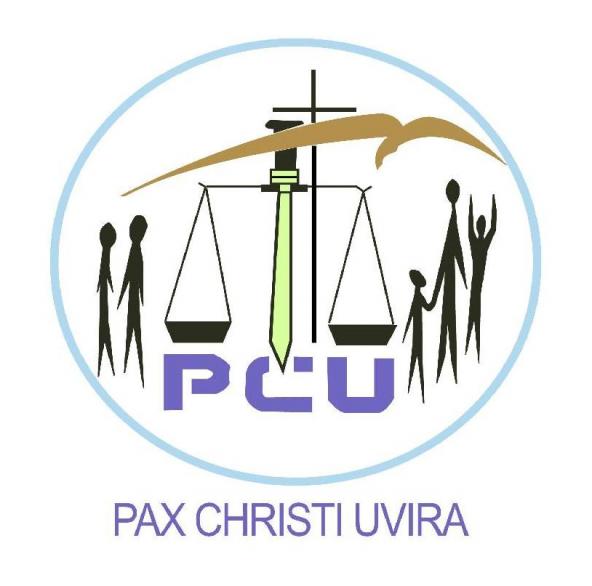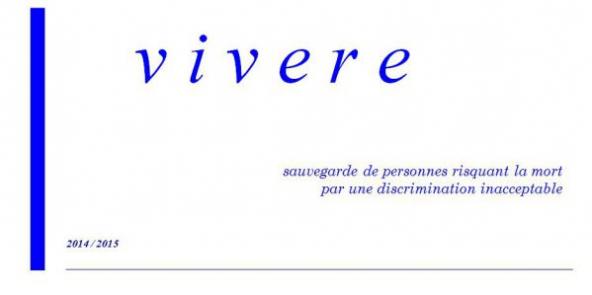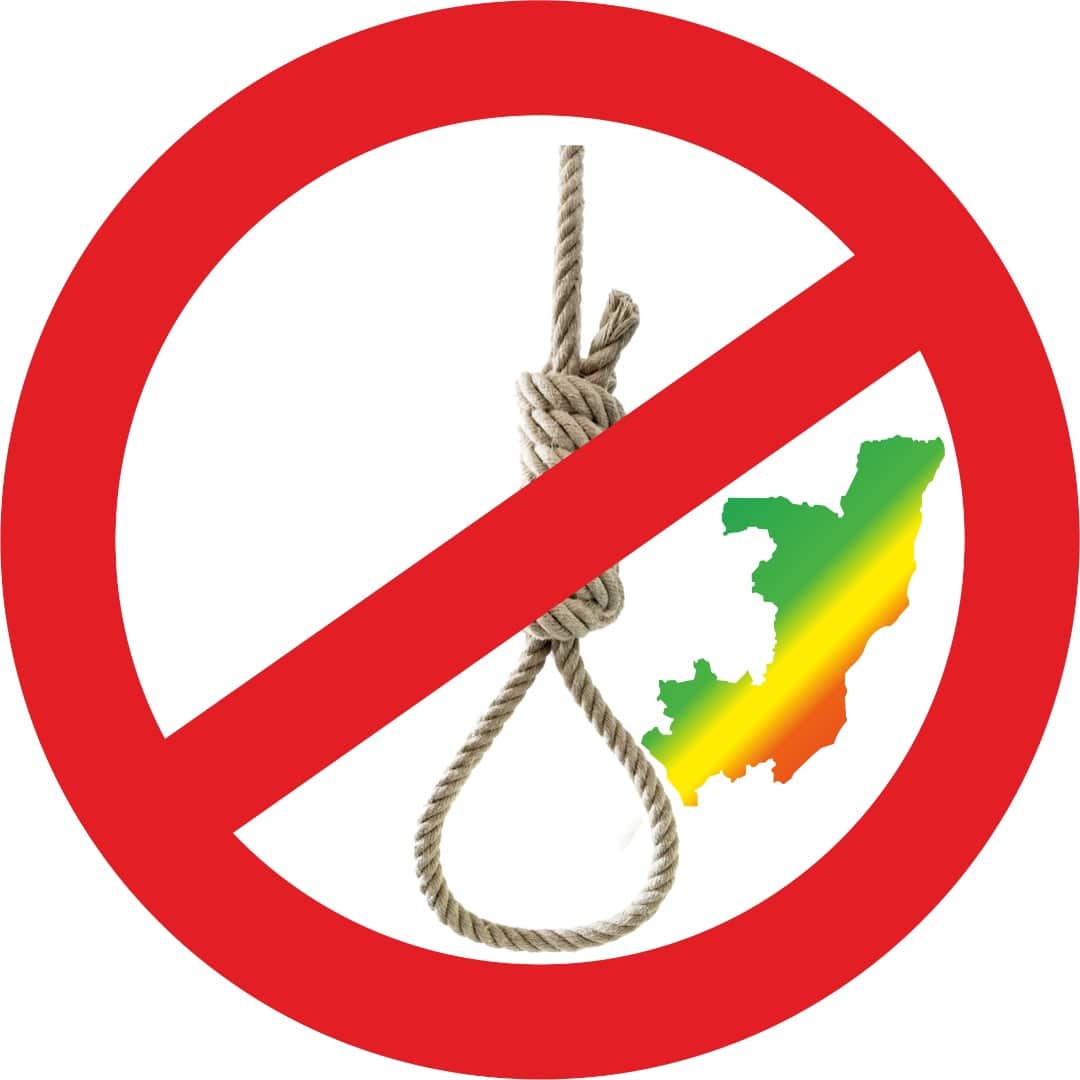Your search “Keep%20the%20death%20penalty%abolished%20in%20the%20ePhilippfines%20e%20e%20e%20e%20e%20e%20e%20e%20e%20e/page/com16501.content.olc.org/com/ref/collection/criminal/did/154 ”
Document(s)
No death penalty: Essay on the human dignity of the guilty
By Alfredo De Francesco , on 11 January 2022
2022
Book
More details See the document
Is the death penalty “natural” or sometimes legally due?
If not, is the death penalty always a political instrument?
If so, how and why can it be said that the death penalty is unjust, also considering religious values?
What about in case of war time or of very dangerous criminals?
In which way can there be an irrefutable argument for banning the death penalty worldwide and forever?
These and other issues concerning the death penalty are addressed by the Author of this book.
A book, where the most common theories for and against the death penalty are considered in the light of law history and philosophical views, and where Cesare Beccaria’s approach is revised, taking into account the development of the contemporary criminal law and of the legal positivism.
This is an essay, where the protection of humanity is not considered simply as a hope or as a naive dream, but rather as a juridical concept, absolutely necessary to understand one of most tragic questions of all time: “is it just to kill those who killed?”
- Document type Book
Document(s)
WHEN THE FEDERAL DEATH PENALTY IS “CRUEL AND UNUSUAL”
By Michael J. Zydney Mannheimer / The University of Cincinnati Law Review, on 1 January 2006
2006
Article
United States
More details See the document
Recent changes to the way the U.S. Department of Justice decides whether to pursue capital charges have made it more likely that the federal death penalty will be sought in cases in which the criminal conduct occurred within States that do not authorize capital punishment for any crime. As a result, since 2002, five people have been sentenced to death in federal court for conduct that occurred in States that do not authorize the death penalty. This state of affairs is in serious tension with the Eighth Amendment’s proscription against “cruel and unusual punishments.”
- Document type Article
- Countries list United States
- Themes list Cruel, Inhuman and Degrading Treatment and Punishment,
Document(s)
Appointed but (Nearly) Prevented From Serving: My Experiences as a Grand Jury Foreperson
By Phyllis L. Crocker / Ohio State Journal of Criminal Law, on 1 January 2004
2004
Article
United States
More details See the document
I begin this essay with basic information about grand juries, then tell what happened to our grand jury, and conclude by reflecting on what I learned from this experience. My theme is the tension between the grand jury’s independence and the prosecutor’s desire to control it. The lesson I learned, intellectually and emotionally, is the depth and tenacity of the prosecutor’s assumption that he does control, and has the right to control, the grand jury process. I also learned some lessons about being a client, and believing in oneself and one’s principles.
- Document type Article
- Countries list United States
- Themes list Networks,
Document(s)
Illegal Racial Discrimination in Jury Selection: A Continuing Legacy
By Equal Justice Initiative, on 1 January 2010
2010
NGO report
More details See the document
Today in America, there is perhaps no arena of public life or governmental administration where racial discrimination is more widespread, apparent, and seemingly tolerate than in the selection of juries. Nearly 135 years after Congress enacted the 1875 Civil Rights Act to eliminate racially discriminatory jury selection, the practice continues, especially in serious criminal and capital cases.
- Document type NGO report
- Themes list Networks,
Document(s)
The death penalty in Africa
By Dirk van Zyl Smit / African Human Rights Law Journal, on 1 January 2004
2004
Article
More details See the document
This article examines the situation of the death penalty in Africa. It does so byaddressing three main questions: First, to what extent is the death penalty inAfrica in fact an issue about which one should be particularly concerned?Second, what are the restrictions on the death penalty in Africa? Third, whatis to be done to strengthen the restrictions on the death penalty in Africa? Inaddition, the article examines the question whether article 4 of the AfricanCharter on Human and Peoples’ Rights and its related provisions will inspirethe abolition of the death penalty. It is suggested that challenging mandatorydeath sentences, advancing procedural challenges, open debate onalternatives to the death penalty, and improving the national criminaljustice system will strengthen restrictions on the death penalty in Africa. Thearticle concludes that positive criminal justice reform rather than moralisticcondemnation is the most effective route to the eventual abolition of thedeath penalty in Africa.
- Document type Article
- Themes list Networks,
Document(s)
Addressing Capital Punishment Through Statutory Reform
By Douglas A. Berman / Ohio State Law Journal, on 1 January 2002
2002
Article
United States
More details See the document
State legislatures principally have been responsible for the acceptance and evolution (and even sometimes the abandonment) of capital punishment in the American criminal justice system from the colonial and founding eras, through the nineteenth and twentieth centuries, and now into the twenty-first century. A number of colonial legislative enactments, though influenced by England’s embrace of the punishment of death, uniquely defined and often significantly confined which crimes were to be subject to capital punishment.[1] State legislatures further narrowed the reach of the death penalty through the early nineteenth century as states, prodded often by vocal abolitionists and led by developments in Pennsylvania, divided the offense of murder into degrees and provided that only the most aggravated murderers would be subject to the punishment of death. The late nineteenth and early twentieth centuries also saw states, as the product of legislative enactments, move away from mandating death as the punishment for certain crimes by giving juries discretion to choose which defendants would be sentenced to die. Throughout all these periods, statutory enactments have also played a fundamental role in the evolution of where and how executions are carried out.
- Document type Article
- Countries list United States
- Themes list Networks,
Document(s)
Executing the Insane: The Story of Scott Panetti
By The Texas Defender Service / Google videos, on 1 January 2007
2007
Legal Representation
More details See the document
Scott Panetti was accused of killing his parents in law and convicted. Scott suffered from severe mental illness for many years, Schizophrenia. He dismissed his legal counsel and represented himself at trial wearing a cow boy suit and asking irrelavent questions. This video tells the story of Scott Panetti’s case and questions whether he was mentally stable to attend trial and represent himself.
- Document type Legal Representation
- Themes list Networks,

Member(s)
Hands Off Cain
on 30 April 2020
Hands Off Cain is a league of citizens and parliamentarians for the abolition of the death penalty worldwide. It was founded in Brussels in 1993. Hands Off Cain (HOC) is a non-profit organization and a constituent member of the Transnational Radical Party. The name “Hands Off Cain” is inspired by the Genesis. The first book […]
2020
Italy

Member(s)
Civil Rights and Social Justice Society (CRSJS)
on 30 April 2020
The Civil Rights and Social Justice Society (CRSJS) is a human rights NGO registered under the Travancore Cochin, Literary, Scientific and Charitable Societies Registration Act, 1955 in Kerala State, India in the year 1997. The members of CRSJS are persons committed to the promotion and protection of human rights in all spheres. However the main […]
India

Member(s)
Confédération générale du travail (CGT)
on 30 April 2020
The General Confederation of Labour (Confédération générale du travail – CGT) is based in France and is strong of 690,000 members. It is affiliated to the European Trade Union Confederation and the International Trade Union Confederation and is one of the confederated unions representing France. Through its analysis, proposals and action, it aims at developping […]
France
Member(s)
Children Education Society (CHESO)
on 30 April 2020
The mandate of Children Education Society (CHESO) is: – To combat causes of most vulnerable children including children’s rights violations, poor governance, HIV/AIDS, poverty, climate change and reinforce realization of the children’s right to education -To eliminate bad policies and laws subjecting children to vulnerability – To end human rights violations subjecting children to vulnerability […]
United Republic of Tanzania

Member(s)
Ville de Dijon
on 30 April 2020
The City of Dijon, France, is a member of the World Coalition.
France

Member(s)
Mouvement contre le Racisme et pour l’Amitié entre les Peuples (MRAP)
on 30 April 2020
The Movement Against Racism and for Friendship between Nations (MRAP) has its origins in the French Resistance: it emerged from the National Movement against Racism, founded secretly in 1941 to save Jewish children from deportation and to thwart the racist ideology of the Vichy regime. Since then the MRAP has taken action against other forms […]
France
Member(s)
Forum Marocain pour la Vérité et la Justice
on 30 April 2020
Le Forum marocain pour la vérité et la justice (FMVJ) was created by victims of the “years of lead” between 1956 and 1999. It defines itself as a human rights association dedicated to defending the rights of victims of forced disappearances, arbitrary detention, torture and exile, and their families. The FMVJ seeks to establish the […]
Morocco

Member(s)
Culture pour la Paix et la Justice (CPJ)
on 30 April 2020
The association Culture for Peace and Justice (CPJ) was founded in Kinshasa at the end of 1990s by a lawyer, Liévin Ngondji, and a law student, Molisho Ndarabu Eulethère. At a time of war, they wanted to fight against the practice of the Military court, an exceptional court established in 1997 that pronounced numerous death […]
Democratic Republic of the Congo

Member(s)
Coalition marocaine contre la peine de mort
on 30 April 2020
The Moroccan Coalition Against the Death Penalty (CMCPM) brings together seven NGOs: -the Moroccan Prison Observatory, -the Moroccan Human Rights Association, -the Moroccan Forum for Truth and Justice, -the Moroccan Organisation for Human Rights, -the Association of Lawyers’ Bars in Morocco, -Amnesty International – Moroccan Section and -the Centre for People’s Rights. Its objectives are […]
Morocco

Member(s)
RADHOMA
on 30 April 2020
The network of human rights organisations and activists for the abolition of the death penalty (RADHOMA) is an abolitionist NGO of the DRC. 1. Fundation and headquarters Created on 10 October 2005 by member associations, the organization is a member of the Congolese Coalition Against the Death Penalty and of the World Coalition Against the Death […]
Democratic Republic of the Congo
Member(s)
ACAT Liberia
on 30 April 2020
Action by Christians for the Abolition of Torture in Liberia (ACAT Liberia) is an NGO based in Liberia. Created in 2003 and accredited in 2004, it fights to have a society free of torture and death penalty. To reach these goals, their main actions are: – Education and awareness, – advocacy, assistance, – cooperation, – […]
Liberia

Member(s)
We Believe in Second Chances
on 30 April 2020
We Believe in Second Chances was founded as a reaction to Yong Vui Kong’s condemnation to death, and are advocating for the abolishment of the death penalty in Singapore.
Singapore
Member(s)
Ordre des avocats de Genève
on 30 April 2020
The Geneva Bar association (Ordre des Avocats de Genève) represents lawyers before the authorities, other regional bar associations, foreign bar associations and the Swiss Lawyers’ Federation. At the same time, it looks after the strict application of ethical and deontological standards. The Geneva Bar association was a partner of the 4th World Congress Against the […]
Switzerland

Member(s)
Ordre des Barreaux Francophones et Germanophones de Belgique – OFBG
on 30 April 2020
The French- and German-speaking bars association (Ordre des barreaux francophones et germanophone, OBFG) brings together 10 French-speaking bar association and one German-speaking. It is regulated by Belgian penal laws.
Belgium
Member(s)
Iraqi Coalition against Death Penalty
on 30 April 2020
The Iraqi Coalition against Death Penalty (first called the Iraqi Alliance for the Prevention of the Death Penalty) promotes and enhances the values of human rights among Iraqi people. The Coalition works to define the culture of human rights in the judicial system. It also observes and documents violations of human rights in Iraq to […]
Iraq

Member(s)
Pax Christi Uvira asbl
on 30 April 2020
Pax Christi Uvira is a non-profit association (asbl) created in 2003 in Uvira (Diocese of Uvira) in the province of South Kivu, in the east of the Democratic Republic of Congo. It joins the World Catholic Movement for Peace, PAX CHRISTI INTERNATIONAL, as a local group. It is an NGO under Congolese law (with legal […]
Democratic Republic of the Congo

Member(s)
Coalition nationale tunisienne contre la peine de mort
on 30 April 2020
The National Tunisian Coalition Against the Death Penalty (CTCPM) was founded in 2007 and legally recognized in 2012 after the fall of dictator Ben Ali. The CTCPM continues many generations of activist’ fight for the abolition of the death penalty since the mid-1970s. The CTCPM’s objectives are written down in its charter: – Achieving the abolition […]
Tunisia

Member(s)
Magistrats européens pour la démocratie et les libertés (MEDEL)
on 30 April 2020
European Judges and Public Prosecutors for Democracy and Fundamental Rights (Magistrats européens pour la démocratie et les libertés – MEDEL)) is an association regrouping 23 association of judges and prosecutors coming from 16 European countries. Its activities are centred on debates and studies on the independence of the judiciary and international judicial co-operation, in connection […]
Germany

Member(s)
Hope and Justice
on 30 April 2020
Hope and Justice is a small association founded after a plea for help from two prisoners sentenced to death, Justin Fuller and Carl Brooks. The initial aim was to save their lives by raising awareness among the greatest number of people possible of their cases and a fund for their defence. Justin Fuller was executed […]
Belgium

Member(s)
Réseau Marocain Euromed des ONG
on 30 April 2020
Morocco
Document(s)
Death Penalty – Mistake (Leonel Herrera)
By Amnesty International / YouTube, on 8 September 2020
2020
Academic report
United States
esMore details See the document
This video explores the story of Leonel Herrera who was sentenced to death for the murder of a police man. A statement from his nephew came many years later that shed light on Leonels innocence.
- Document type Academic report
- Countries list United States
- Themes list Networks,
- Available languages Death Penalty - Mistake (Leonel Herrera)

Member(s)
Vivere
on 30 April 2020
2020
Switzerland

Member(s)
Coalition nigérienne contre la peine de mort
on 30 April 2020
Niger

Member(s)
Iran Human Rights
on 30 April 2020
Iran Human Rights (IHR) is a non-profit politically independent NGO with a mission to build a strong civil society by empowering citizens, promoting and defending human rights as defined by the Universal Declaration of Human Rights. Abolition of the death penalty is one of the main objectives of IHR’s activities. With its broad network of […]
Iran (Islamic Republic of)
Document(s)
In This Timeless Time: Living and Dying on Death Row in America
By Univerity if North Carolina / Diane Christian, on 1 January 2012
2012
Book
United States
More details See the document
In this comprehensive, well-crafted book, published in association with the Center for Documentary Studies at Duke University, SUNY-Buffalo professors Jackson and Christian build upon the photographs and interviews from death row in Texas that yielded their 1979 book and documentary Death Row
- Document type Book
- Countries list United States
- Themes list Cruel, Inhuman and Degrading Treatment and Punishment, Death Row Phenomenon,
Document(s)
Europe as an International Actor: Friends Do Not Let Friends Execute: The Council of Europe and the International Campaign to Abolish the Death Penalty
By Sangmin Bae / International Politics, on 1 January 2008
2008
Article
Ukraine
More details See the document
This article investigates the way in which the Council of Europe enforced the norm against capital punishment in Europe. The Council of Europe, through both moral persuasion and centripetal pressure, compelled its member states to adopt the regionally promoted human rights standard. Ukraine, where the very last execution in Europe took place, accepted the norm after a number of years of resistance and in the face of public opposition to abolition. It was possible because of the adamant role of the Council of Europe in attempting to build a death penalty-free zone in Europe and Ukraine’s strategic will to be integrated within the European regional community.
- Document type Article
- Countries list Ukraine
- Themes list Trend Towards Abolition,
Document(s)
The Use of Peremptory Challenges in Capital Murder Trials: A Legal and Empirical Analysis
By George Woodworth / David C. Baldus / David Zuckerman / University of Pennsylvania Journal of Constitutional Law / Neil Alan Weiner / Barbara Broffitt, on 1 January 2001
2001
Article
United States
More details See the document
One of the largely unique aspects of the American jury system is that it confers upon the parties the unilateral power – in the form of peremptory challenges – to remove prospective jurors for any non-racial or non-gender-based reason. This article presents an overview of the literature on peremptory challenges, and an empirical analysis of their use in Philadelphia capital cases in the 1980s and 1990s.
- Document type Article
- Countries list United States
- Themes list Fair Trial,
Document(s)
The Challenge to the Mandatory Death Penalty in the Commonwealth Caribbean
By JOANNA HARRINGTON / American Journal of International Law, on 1 January 2004
2004
Article
More details See the document
The death penalty is a subject that, in the words of Justice Adrian Saunders of the Eastern Caribbean Court of Appeal, “invariably elicits passionate comment.” Such comment is particularly so within the states that make up the Commonwealth Caribbean, where rising rates of violent crime have led to strong public clamor for a swift and final response. The involvement of foreign courts and quasi-judicial international tribunals in limiting the actual use of the death penalty in the Caribbean has made the issue even more politically charged, leading to a strongly held perception that the judgments of these foreign bodies are unacceptable challenges to the very exercise of Caribbean national sovereignty.
- Document type Article
- Themes list Mandatory Death Penalty,
Document(s)
Death penalty in Iran: A State terror policy – Special Update for 11th World Day against the Death Penalty
By International Federation for Human Rights (FIDH), on 8 September 2020
2020
NGO report
Iran (Islamic Republic of)
faMore details See the document
The change of administration in the Islamic Republic of Iran (IRI) and taking of office by a new president on 3 August 2013 has not brought any change as far as the death penalty is concerned. Between the 14 June presidential election and 1st October, more than 200 people have been reportedly executed, including possibly three people who may have been younger than 18 at the time of the commission of the alleged crimes.Against this backdrop, FIDH and its member organisation, LDDHI, have decided topublish the present report to analyse the new penal laws in force in Iran that are invoked consistently to violate the right to life in general and to execute child offenders. Coinciding with 10 October 2013, World Day against the Death Penalty, this report aimsto serve as an update on the current state of application of the death penalty in the IRI.
- Document type NGO report
- Countries list Iran (Islamic Republic of)
- Themes list Juveniles, Drug Offences, Hanging, Country/Regional profiles,
- Available languages مجازﺯاﺍتﺕ اﺍعداﺍمﻡ دﺩرﺭ اﺍﯾﻳراﺍنﻥ - سﯿﻴاست دﺩوﻭلتﯽﻲ اﺍﯾﻳجادﺩ وﻭحشت - وﻭﯾﻳژهﻩ ﯾﻳازﺯدﺩهمﯿﻴن رﺭوﻭزﺯ جهانﯽﻲ ضد مجازﺯاﺍتﺕ اﺍعداﺍمﻡ
Document(s)
Trial and Errors : The Texas Death Penalty
By Lisa Maxwell / AMITI, on 1 January 2013
2013
Book
United States
More details See the document
TRIAL & ERROR takes a thorough look at the most controversial issues of the Texas Death Penalty that have raised questions of fairness and equality. Read words of inmates on death row in interviews conducted by the Amiti Organization, then judge for yourself whether the Death Penalty is administering justice or injustice.
- Document type Book
- Countries list United States
- Themes list Death Row Conditions, Death Penalty, Country/Regional profiles,

Member(s)
Coalition Congolaise Contre la Peine de Mort (CCPM)
on 27 February 2023
In their desire to promote the abolition of the death penalty in the Republic of Congo, Congolese abolitionists have formed a coalition called the Coalition Congolaise Contre la Peine de Mort, Congolese Coalition Against the Death Penalty (CCCPM). This coalition was created on October 02, 2019 in Brazzaville. Its main objectives are the promotion of […]
2023
Congo
Document(s)
Foreign nationals facing the death penalty in the USA: the important role of consular officials
By Reprieve, on 1 January 2012
2012
Lobbying
More details See the document
This video explains the role of consular officers in protecting their nationals when they face the death penalty abroad.
- Document type Lobbying
- Themes list Foreign Nationals,
Document(s)
The Death Penalty in China: Towards the Rule of Law
By Nicola Macbean / Ashgate Publishing, on 1 January 2008
2008
Academic report
More details See the document
In the run up to the 2008 Olympics in Beijing, intemational criticism of China’s human rights record has highlighted the use of the death penalty. Although global activists may try to intemationalise China’s use ofthe death penalty, capital punishment is a domestic issue.
- Document type Academic report
- Themes list Public debate, Cruel, Inhuman and Degrading Treatment and Punishment, Country/Regional profiles,
Document(s)
BN at 6 – Our Stories, Our Miracles: Sentenced to Death, An Innocent Man Steps Out After 24 Years in Prison – Olatunji Olaide shares his story of Survival, Freedom & Hope
By Adeola Adeyemo / Bellanaija, on 8 September 2020
2020
Article
Nigeria
More details See the document
Olatunji Olaide was wrongfully arrested and subsequently sentenced to death. He shares the harrowing experience of his time in prison and his survival and freedom with BN and how he kept his head high in the face of the storm.We hope that you are inspired by it.
- Document type Article
- Countries list Nigeria
- Themes list Innocence,
Document(s)
Film: “Execution”
By Steven Scaffidi / Ghost Rider Pictures, on 8 September 2020
Academic report
More details See the document
Amnesty International Presents a Groundbreaking Film Event That Takes the Audience to the Front Row of an Execution–Regal Cinemas opens its doors in eight major cities across America for this first-of-a-kind motion picture less than 1 week after California’s attempt to repeal the death penalty fails.
- Document type Academic report
- Themes list Innocence,
Document(s)
Article: “Troy Davis: Why Poster Boys Don’t Matter”
By David R. Dow / Guerinca, on 8 September 2020
Academic report
United States
More details See the document
Is the Troy Davis case the tipping point on the capital punishment debate? Unfortunately, not until the majority of Americans believes that killing—even an unquestionably guilty murderer—is wrong.
- Document type Academic report
- Countries list United States
- Themes list Innocence,
Document(s)
Emergency Exit: Which actions for supporting offenders close te release?
By Save Anthony, on 1 January 2013
2013
NGO report
More details See the document
In a recent research , Emergency Exit: Which actions for supporting offenders close te release?, 13 key practices have proven to help resettle successfully ex offenders into society at their exit of prison and prevent them from re-offending.
- Document type NGO report
- Themes list Public debate,
Document(s)
Innocence Lost: A Play About Steven Truscott
By Beverley Cooper / Centaur Theater Company, on 1 January 2013
Working with...
More details See the document
In 1959, the Canadian justice system nearly killed an innocent 14-year-old boy. The fact that Steven Truscott was wrongly convicted of the rape and murder of 12-year-old Lynne Harper that year, and sentenced to hang, now seems surreal. All the more so since he’s alive and well and living quietly with his family after 10 years of unjust incarceration – and many more years as an obscure factory worker, father and grandfather, after suffering the consequences of a destroyed reputation.
- Document type Working with...
- Themes list Public opinion, Innocence,
Document(s)
Human Rights and Democracy: The 2010 Foreign & Commonwealth Office Report
By United Kingdom Foreign & Commonwealth Office, on 8 September 2020
2020
NGO report
Afghanistan
More details See the document
The report covers the period from January to December 2010, though some key events in early 2011 have also been included. It highlights the important progressbeing made, serious concerns that we have, and what we are doing to promote our values around the world. It will rightly be studied closely by Parliament, NGOs and the wider public. There is a chapter dedicated to the death penalty, as well as 2010 figures on the death penalty in target countries.
- Document type NGO report
- Countries list Afghanistan
- Themes list Networks,
Document(s)
Siting the Death Penalty Internationally
By Valerie West / David F. Greenberg / Law and Social Inquiry, on 1 January 2008
2008
Article
More details See the document
We examine sources of variation in possession and use of the death penalty using data drawn from 193 nations in order to test theories of punishment. We find the death penalty to be rooted in a country’s legal and political systems, and to be influenced by its religious traditions. A country’s level of economic development, its educational attainment, and its religious composition shape its political institutions and practices, indirectly affecting its use of the death penalty. The article concludes by discussing likely future trends.
- Document type Article
- Themes list Networks,
Document(s)
By Amnesty International / Anti-Death Penalty Asia Network, on 1 January 2020
2020
NGO report
More details See the document
Энэхүү илтгэлийг боловсруулахдаа хэд хэдэн хэргийг тоймлон бичсэн ба тэдгээр нь цаазын ялыг хэрэгжүүлэхийн бодит аюулыг ил тодорхой харуулж байна.
- Document type NGO report
- Themes list Networks,
Document(s)
Victims, We Care
By Taiwan Alliance to End the Death Penalty / Murder Victims' Families for Human Rights / YouTube, on 1 January 2011
2011
Working with...
More details See the document
Victims, We Care
- Document type Working with...
- Themes list Murder Victims' Families,
Document(s)
When Justice Fails: Thousands executed in Asia after unfair trials
By Amnesty International / Anti-Death Penalty Asia Network, on 1 January 2011
NGO report
More details See the document
Failures of justice in trials which result in an execution cannot be rectified. In the Asia-Pacific region, where 95 per cent of the population live in countries that retain and use the death penalty, there is a real danger of the state executing someone in error following an unfair trial.
- Document type NGO report
- Themes list Fair Trial,
Document(s)
Lethal Injustice in Asia: End unfair trials, stop executions
By Amnesty International / Anti-Death Penalty Asia Network, on 1 January 2011
NGO report
enenenenenenenenzh-hantMore details See the document
More people are executed in the Asia-Pacific region than in the rest of the world combined. Add to this the probability that they were executed following an unfair trial, and the gross injustice of this punishment becomes all too clear.
- Document type NGO report
- Themes list Fair Trial,
- Available languages Korean : 아시아에서의 치명적 불의 불공정 재판을 멈춰라, 사형집행을 중단하라.Thai : การประหารชีวิตที่อยุติธรรม ในภูมิภาคเอเชีย ยุติการพิจารณาคดีที่ไม่เป็นธรรม ยกเลิกการประหารชีวิตUrdu : یفاصناان کلہم ںیم ایشیا ںیرک متخ توم ےازس ،دنب تامدقم ہنافصنمریغTagalog : NAKAMAMATAY NA KAWALAN NG KATARUNGAN SA ASYA Itigil ang Di Makatarungang paglilitis, Itigil ang PagbitayMongolian : АЗИ ТИВ ДЭХ ЭНЭРЭЛГҮЙ ШУДАРГА БУС ЯВДАЛ Шударга бусaap шүүх явдлыг зогсоож, цаазын ялыг халъяJapanese : 不当に奪われる生命 ~アジアにおける不公正な裁判を止め、 死刑執行の停止を~Hindi : एशिया में घातक अन्याय: समाप्ति अनुचित परीक्षण, सज़ाएँ बंद करोIndonesian : KETIDAKADILAN YANG MEMATIKAN DI ASIA Akhiri peradilan yang tidak adil, hentikan eksekusi亚洲的致命不公: 终止不公审判,停止处决
Document(s)
Lapan lembaran kes (meliputi China, India, Indonesia, Jepun, Malaysia, Pakistan, Singapura, Taiwan)
By Amnesty International / Anti-Death Penalty Asia Network, on 1 January 2011
Academic report
enenenenenenzh-hantMore details See the document
Lapan lembaran kes (meliputi China, India, Indonesia, Jepun, Malaysia, Pakistan, Singapura, Taiwan)
- Document type Academic report
- Themes list Networks,
- Available languages Urdu : آٹھ کیس شیٹ (ڈھکنے کا چین، بھارت، انڈونیشیا، جاپان، ملائیشیا، پاکستان، سنگاپور ، تائیوان)Thai : แปดแผ่นกรณี (ครอบคลุมถึงจีน, อินเดีย, อินโดนีเซีย, ญี่ปุ่น, มาเลเซีย, ปากีสถาน, สิงคโปร์, ไต้หวัน)Tagalog : Eight kaso sheet (sumasakop sa China, India, Indonesia, Japan, Malaysia, Pakistan, Singapore, Taiwan)Japanese : 八ケースシート(カバー中国、インド、インドネシア、日本、マレーシア、パキスタン、シンガポール、台湾)Indonesian : Delapan kasus lembar (meliputi Cina, India, Indonesia, Jepang, Malaysia, Pakistan, Singapura, Taiwan)Hindi : आठ मामले शीट (कवर चीन, भारत, इंडोनेशिया, जापान, मलेशिया, पाकिस्तान, सिंगापुर, ताइवान)八个案例张(包括中国,印度,印度尼西亚,日本,马来西亚,巴基斯坦,新加坡,台湾)
Document(s)
Grief, Loss, and Treatment for Death Row Families
By Sandra Joy, on 5 December 2013
2013
Book
Murder Victims' Families
More details See the document
The families of death row inmates are rarely considered in public discourse regarding the death penalty. They have largely been forgotten, and their pain has not been acknowledged by the rest of society. These families experience a unique grief process as they are confronted with the loss of their loved one to death row and brace themselves for the possibility of an execution. Death row families are disenfranchised from their grief by the surrounding community, and their; mental health needs exacerbated as they struggle in isolation with the ambiguous loss that comes with the fear that the state will kill their loved one.
Grief, Loss, and Treatment for Death Row Families describes the grief that families experience from the time of their loved one’s arrest through his or her execution. In each chapter, Sandra Joy guides the reader through the grief process experienced by the families, offering clinical interventions that can be used by mental health professionals who are given the opportunity to work with these families at various stages of their grief. The author conducted over seventy qualitative interviews with family members from Delaware who either currently have a loved one on death row or have survived the execution of their loved one. Delaware was chosen because though it has a relatively small death row, it is ranked third in the nation with its rate of per capita executions. This book provides an in-depth awareness of the grieving process of death row families, as well as ways that professionals can intervene to assist them in healing. With increased awareness and effective clinical treatment, we can ensure that the families of death row inmates are forgotten no more.
- Document type Book
- Themes list Murder Victims' Families
Document(s)
Peter Jackson talks about his innocence project: ‘West of Memphis’
By Chris Nashawaty / Entertainment Weekly, on 8 September 2020
2020
Academic report
United States
More details See the document
For the past seven years, Peter Jackson and Fran Walsh have quietly financed investigations to help free Jason Baldwin, Jesse Misskelley Jr., and Damien Echols, known as the the West Memphis Three, who were wrongly convicted in 1994 of murdering three 8-year-old boys in West Memphis , Arkansas. This piece provides and in-depth look into Peter and Fran’s involvement with the investigattion, the creation of ‘West of Memphis’ as a way to expose key developments in the infamous murder case and Jackson’s main goal, to exonerate the West Memphis Three and help find the real killer.
- Document type Academic report
- Countries list United States
- Themes list Innocence,
Document(s)
A blow to human rights: Taiwan resumes executions: The Death Penalty in Taiwan, 2010
By Taiwan Alliance to End the Death Penalty, on 1 January 2011
2011
NGO report
zh-hantMore details See the document
This report details the administration of the death penalty in Taiwan. It discusses Taiwans obligations under international law, how executions are carried out, the profile of the condemned, discrimination in the sysem and discusses placing a moratorium on executions in Taiwan.
- Document type NGO report
- Themes list Networks,
- Available languages 重啓死刑執行 廢死之路大倒退- 2010台灣死刑報告
Document(s)
Incendiary: the Willingham case
By Joe Bailey Jr. / Indira Barykbayeva / YOKEL production, on 1 January 2011
Legal Representation
More details See the document
After its national release in October, “Incendiary: The Willingham Case” is now available on DVD and through Apple’s iTunes Movie Store.The film examines the execution of Cameron Todd Willingham in Texas for the murder of his children by arson and centers around evolving standards of scientific evidence and the notion that an innocent man was executed
- Document type Legal Representation
- Themes list Innocence,
Document(s)
Killer Art: Florida’s Death Row Artists
By Chris Dahl / CreateSpace Independent Publishing Platform, on 8 September 2020
2020
Book
United States
More details See the document
Art and letters from the men who await death in the Union Correctional Institution in Raiford, Florida
- Document type Book
- Countries list United States
- Themes list Cruel, Inhuman and Degrading Treatment and Punishment, Death Row Conditions, Country/Regional profiles,
Document(s)
Beyond the Death Penalty: Reflections on Punishment (Maastricht Series in Human Rights)
By Jacques Claessen / Hans Nelen / Intersentia , on 1 January 2012
2012
Book
More details See the document
This book contains a selection of papers that were presented during the multidisciplinary conference “Beyond the Death Penalty: Reflections on Punishment,” organized by the Maastricht Center for Human Rights. The aim of the conference was to reflect on punishment from a variety of angles and to give some food for thought to the contemporary debate on crime and punishment. After a first cluster of chapters with a strong focus on capital punishment, an intriguing mixture of topics in relation to punishment is presented, including chapters on the populist context of contemporary crime control, reconciliation and rehabilitation, prison life, and efficiency and effectiveness.
- Document type Book
- Themes list Cruel, Inhuman and Degrading Treatment and Punishment,
Document(s)
Anatomy of Injustice: A Murder Case Gone Wrong
By Raymond Bonner / Stated First Edition, on 1 January 2012
Book
United States
More details See the document
The book that helped free an innocent man who had spent twenty-seven years on death row. In January 1982, an elderly white widow was found brutally murdered in the small town of Greenwood, South Carolina. Police immediately arrested Edward Lee Elmore, a semiliterate, mentally retarded black man with no previous felony record. His only connection to the victim was having cleaned her gutters and windows, but barely ninety days after the victim’s body was found, he was tried, convicted, and sentenced to death.
- Document type Book
- Countries list United States
- Themes list Cruel, Inhuman and Degrading Treatment and Punishment, Death Row Conditions,
Document(s)
Death Watch Diary
By Robert Towery / Amazon Digital Services, on 1 January 2012
Book
United States
More details See the document
Robert Towery was denied clemency by the state of Arizona on Friday March 2, 2012 and was executed on Thursday March 8th in Florence, Arizona. He was 47 years old. The last 35 days of his life, Robert was placed on “Death Watch” where his every move was recorded and chronicled by prison officials. Robert kept a diary and he sent his writings to his attorneys. Robert authorized his lawyers to release his diary after his execution.
- Document type Book
- Countries list United States
- Themes list Cruel, Inhuman and Degrading Treatment and Punishment, Death Row Conditions,
Document(s)
State-sponsored Homophobia: A world survey of laws prohibiting same sex activity between consenting adults
By Daniel Ottosson / International Lesbian, Gay, Bisexual, Trans and Intersex Association (ILGA), on 1 January 2010
2010
NGO report
enfresMore details See the document
The purpose of this annual report on State-sponsored Homophobia, as stated since its first edition in 2007, is to name and shame the states which in the 21st century deny the most fundamental human rights to LGBTI people, i.e. the right to life and freedom, in the hope that with every year more and more countries decide to abandon the ‘community’ of homophobic states.Compared to last year’s report, where we listed the 77 countries prosecuting people on ground of their sexual orientation, this year you will find ―only‖ 76 in the same list, including the infamous 5 which put people to death for their sexual orientation: Iran, Mauritania, Saudi Arabia, Sudan and Yemen (plus some parts of Nigeria and Somalia). One country less compared to the 2009 list may seem little progress, until one realizes that it hosts one sixth of the human population.
- Document type NGO report
- Themes list Homosexuality,
- Available languages Portuguese : Homofobia do Estado: Uma pesquisa mundial sobre legislações que proíbem relações sexuais consensuais entre adultos do mesmo sexoHomophobie d'État: Une enquête mondiale sur les lois qui interdisent la sexualité entre adultes consentants de même sexeHomofobia de Estado: Un informe mundial sobre las leyes que prohiben la actividad homosexual con consentimiento entre personas adultas
Document(s)
Death Penalty in Korea: From Unofficial Moratorium to Abolition?
By Kuk Cho / Asian Journal of Comparative Law, on 1 January 2008
2008
Article
Democratic People's Republic of Korea
More details See the document
This article provides an overview of the legal regime governing the death penalty and the on-going debate on the death penalty in Korea. It begins by briefly reviewing international treaties that call for the abolition of the death penalty, contrasting them with the retentionist trend in most Asian countries. It then reviews the major decisions of the Korean Supreme Court and the Korean Constitutional Court. It also discusses recent moves in the National Assembly and the National Human Rights Commission to abolish the death penalty. It suggests that the Korean death penalty debate has potentially significant implications for its retentionist Asian neighbours grappling with similar issues.
- Document type Article
- Countries list Democratic People's Republic of Korea
Document(s)
A Matter of Life and Death: The Effect of Life Without-Parole Statutes on Capital Punishment
By Harvard Law Review, on 1 January 2006
2006
Article
United States
More details See the document
Activists have embraced the life-without-parole alternative because the availability of parole is often a key factor for jurors deciding whether of not to impose a sentence of life or death.
- Document type Article
- Countries list United States
- Themes list Sentencing Alternatives,
Document(s)
Execution Watch: Mitt Romney’s ‘Foolproof’ Death Penalty Act and the Politics of Capital Punishment
By Russell G. Murphy / Suffolk University Law Review, on 8 September 2020
2020
Article
United States
More details See the document
This article presents a legal and political analysis of the 2003 – 2005 effort of Governor Mitt Romney to make the death penalty available as a sentencing option in Massachusetts.
- Document type Article
- Countries list United States
- Themes list Public debate,
Document(s)
Justice by Geography and Race: The Administration of the Death Penalty in Maryland 1978-1999
By Robert Brame / Raymond Paternoster / Margins Law Journal / Sarah Bacon / Andrew Ditchfield, on 1 January 2004
2004
Article
United States
More details See the document
Since July 1978, when Maryland’s capital punishment statute took effect, the State has been plagued by charges that the imposition of the death penalty is influenced by the race of the defendant and the legal jurisdiction in which the homicide occurred. Most critics use the characteristics of condemned inmates on Maryland’s death row, which reveal possible racial motivations. However, the authors argue that simply relying on the characteristics of condemned inmates reveals little about the underlying mechanisms of the imposition of the death penalty. The recent history of capital punishment in Maryland is reviewed, followed by a brief description of the legal structure of capital punishment under Maryland law. In order to empirically measure whether the imposition of capital punishment in Maryland is discriminatory, the authors examined 1,311 death eligible cases in Maryland from July 1, 1978 to December 31, 1999. Death eligible cases were defined as those cases in which the State’s attorney filed a notice of intention to seek a death sentence, the facts established that first degree murder was committed, the defendant was the principle in the first degree murder, the murder included at least one statutory aggravating circumstance, and the defendant was eligible for capital punishment at the time of the offense. The statistical strategy focused on determining the influence of race of victim, race of defendant, and geography on the imposition of the death penalty. Findings suggest that race and geography indeed play an important role in the Maryland justice system. Race and geography exert their most influence at the death notification and death notice retraction stages of the process. Thus, it is prosecutorial discretion that is the most apparent in the possible discriminatory application of capital punishment in Maryland. The findings from this study are unsurprising and are in line with similar studies from other States. The author cautions that overt racism is not necessarily the reason beyond the disproportionate application of capital punishment.
- Document type Article
- Countries list United States
- Themes list Networks,
Document(s)
Another Place Beyond Here: The Death Penalty Moratorium Movement in the United States
By Jeffrey L. Kirchmeier / University of Colorado Law Review, on 1 January 2002
2002
Article
United States
More details See the document
Professor Kirchmeier examines the recent decline in support for the death penalty in the United States and the resulting emergence of a movement to impose a moratorium on executions. After discussing the history of the death penalty abolition movement in the United States, he identifies five major and seven minor events that have contributed to the growth of the Death Penalty Moratorium Movement. Then, he compares the current Moratorium Movement to other similar reform periods: the 1960s Death Penalty Abolitionist Movement; legislative abolition of the death penalty in several states during the mid-1800s and early 1900s; death penalty abolition in other countries; and the Anti-Lynching Movement of the early 1900s. Based on the history of these other movements, Professor Kirchmeier discovers various lessons for today’s Moratorium Movement, including lessons about strategy and the roles of public opinion and leadership. Finally, using these lessons from history and looking at recent events, he considers the future of the Moratorium Movement. Professor Kirchmeier concludes that for the Movement to continue to be successful: (1) there must be no major national distracting forces; (2) the Movement must continue to broaden its arguments and not be overly dependent upon one issue, one person, or one strategy; (3) the Movement must continue seek support from unexpected voices; and (4) the Movement must stay focused on the goals of achieving popular support and creating new leaders. Finally, Professor Kirchmeier predicts that the Moratorium Movement is strong enough to continue to have lasting effects.
- Document type Article
- Countries list United States
- Themes list Moratorium ,
Document(s)
Furman Fundamentals
By Corinna Barrett Lain / Washington Law Review, on 1 January 2007
2007
Article
United States
More details See the document
For the first time in a long time, the Supreme Court’s most important death penalty decisions all have gone the defendant’s way. Is the Court’s new found willingness to protect capital defendants here to stay? Or is it a passing fancy that will dissipate in less hospitable times? At first glance, history allows for optimism. Furman v. Georgia, the 1972 landmark that invalidated the death penalty, provides a seemingly perfect example of the Court’s ability and inclination to protect capital defendants when no one else will. Furman looks countermajoritarian, scholars have claimed it was countermajoritarian, and even the Justices saw themselves as playing a heroic, countermajoritarian role in the case. But the lessons of Furman are not what they seem. Rather than proving the Supreme Court’s ability to withstand majoritarian influences, Furman teaches the opposite – that even in its more countermajoritarian moments, the Court never strays far from dominant public opinion, tending instead to reflect the social and political movements of its time. This Article examines the historical context of Furman v. Georgia and its 1976 counterpart, Gregg v. Georgia, to highlight a fundamental flaw in the Supreme Court’s role as protector of minority rights: its inherently limited inclination and ability to render countermajoritarian change. In theory, the Court might protect unpopular minorities, but in practice it is unlikely to do so unless a substantial (and growing) segment of society supports that protection. Even then, Furman reminds us that the Court’s “help” may do more harm than good. If the past truly is a prologue, Furman portends that the Court’s current interest in restricting the death penalty will not last forever. Like the fair-weather friend, the Court’s protection will likely be there in good times but gone when needed the most.
- Document type Article
- Countries list United States
- Themes list Networks,
Document(s)
Putting Them There, Keeping Them There, and Killing Them: An Analysis of State-Level Variations in Death Penalty Intensity
By William S. Lofquist / Iowa Law Review, on 1 January 2002
2002
Article
United States
More details See the document
The landscape of the American death penalty is diverse. Though death penalty attitudes show a remarkable and increasing degree of homogeneity by region, race, gender, religion, and other factors, the actual practice of the death penalty varies substantially from region to region, and even from state to state. While these variations are widely recognized, they are not widely studied or understood. The lack of attention paid to the actual practice of the death penalty in different states and regions, the patterns that contribute to its use, and the factors associated with these patterns represents a substantial and troubling gap in our knowledge of an issue as widely studied as the death penalty.
- Document type Article
- Countries list United States
- Themes list Networks,
Document(s)
The ‘Shocking Truth’ About the Electric Chair: An Analysis of the Unconstitutionality of Electrocution
By Dawn Macready / Ohio Northern University Law Review, on 1 January 2000
2000
Article
United States
More details See the document
Cruel and unusual punishment, as prohibited by the Eighth Amendment of the United States Constitution, encompasses punishment that amounts to torture and barbarity, cruel and degrading punishment not known to the common law, and punishment so disproportionate to the offense as to shock the moral sense of the community. Thus, contained in the Eighth Amendment is a fundamental respect for humanity. For the imposition of a death sentence, the trier is constitutionally mandated to take into account the character and record of the individual offender and the circumstances of the particular offense. What constitutes cruel and unusual punishment?
- Document type Article
- Countries list United States
- Themes list Cruel, Inhuman and Degrading Treatment and Punishment, Electrocution,
Document(s)
Tessie Hutchinson and the American System of Capital Punishment
By Earl F. Martin / Maryland Law Review, on 1 January 2000
Article
United States
More details See the document
The story focuses on Tessie Hutchinson, who was selected by the communal lottery for execution; her only sin was to live in a village that had the tradition of stoning one of its inhabitants each year. This paper suggests some ways that the life of America’s death penalty mirrors the art of “The Lottery.” The author comments on the “masking of evil,” the execution of the innocent, the arbitrariness in selecting those who die, the search for justification, and the brutality of the death penalty. In “The Lottery,” the tradition of the stoning was so embedded in tradition and its administration was so formal and precise that the ultimate outcome of the tradition, the killing of a fellow human being, was sanitized and unexamined. In America, the net effect of the bureaucratization of executions is to give those who implement them and those who receive reports of them a sense of sterility and mundaneness that should never accompany the state’s killing of its own. Although proponents of capital punishment in America argue that the chances that an innocent person will be executed are slim, history shows that it has occurred. It was no comfort to Tessie Hutchinson that she was to be the only member of her village to be stoned that year. So it is no comfort to the innocent who are executed that each is only one of a small number of innocent people who have been killed by the state. The arbitrariness of the lottery in selecting who will be executed may not be so obvious in the selection of those who will be killed by the state in America. Still, random and arbitrary circumstances impact who is selected to be executed, circumstances such as the race and wealth of the defendant, the race of the victim, the quality of the defense counsel, the particular trial judge, and the State in which the crime occurs. Although there is no unequivocal evidence that the death penalty achieves some monumentally positive benefit for American society, support for it by the community persists, along with its brutality and cruelty. It is difficult to avoid the conclusion that a “thinly veiled cruelty keeps the custom alive.”
- Document type Article
- Countries list United States
- Themes list Networks,
Document(s)
Equality of the Damned: The Execution of Women on the Cusp of the 21st Century
By Elizabeth Rapaport / Ohio Northern Law Review 26(3), 581-600, on 1 January 2000
Article
United States
More details See the document
This article explores why women are rarely executed and examines the execution of four women in the Post-Furman Era, focusing on the execution of Karla Faye Tucker. The execution of Karla Faye Tucker in 1998, the second of the four women to be executed, occured in hte midst of relentless publicity. The Tucker execution revived interest in gender equity in the administration of capital punishment.
- Document type Article
- Countries list United States
- Themes list Women,
Document(s)
Capital Punishment As Human Sacrifice: A Societal Ritual as Depicted in George Elliot’s Adam Bede
By Roberta M. Harding / Buffalo Law Review 48, 175-248, on 1 January 2000
Article
United States
More details See the document
The ritual slaughter of humans for sacrificial purposes has an ancient provenance. Few members of modern society would be inclined to believe that killing humans for sacrificial purposes continues. Of those, most probably envision it only being practiced by individuals who belong to “uncivilized,” or non-“First-World” cultures. Upon closer scrutiny, however, it becomes apparent that this is a misconception because the past and present practice of capital punishment includes a thinly disguised manifestation of the ritualized killing of people, otherwise known as human sacrifice. The purpose of this article is to identify, describe, and analyze the historic and contemporary connection between the practices of capital punishment and human sacrifice. After describing how human sacrifice constitutes an integral component of capital punishment, it will be argued that the institutionalization of this antiquated barbaric ritual, vis-a-vis the use of capital punishment, renders the present use of the death penalty in the United States incompatible with “the evolving standards of decency that mark the progress of a maturing society”; and that consequently, this facet of capital punishment renders the penalty at odds with the Eighth Amendment’s prohibition against the infliction of “cruel and unusual” punishments.
- Document type Article
- Countries list United States
- Themes list Cruel, Inhuman and Degrading Treatment and Punishment,
Document(s)
Innocence, Error, and the ‘New Abolitionism’: A Commentary
By Sarat Austin / Criminology & Public Policy, on 1 January 2005
2005
Article
United States
More details See the document
If statistics are any indication, the system may well be allowing some innocent defendants to be executed.
- Document type Article
- Countries list United States
- Themes list Innocence,
Document(s)
The Effect of Race, Gender, and Location on Prosecutioral Decisions to Seek the Death Penalty in South Carolina
By Isaac Unah / Michael J. Songer / South Carolina Law Review, on 1 January 2006
2006
Article
United States
More details See the document
This Article analyzes the factors that influence the decisions of South Carolina prosecutors to seek the death penalty. Professor Unah and Mr. Songer employ statistical methods to examine the legal and nonlegal factors that shape this decision-making process. Controlling for political factors, this Article finds that the race of the victim, gender, and rural crime locations are significant considerations in the decision to seek the death penalty. Further, Professor Unah and Mr. Songer argue that these nonlegal factors undermine the legal guidelines that are intended to channel and steer the decision-making process. This Article highlights the arbitrary nature of the decisions that result from these considerations, and it concludes by challenging the legitimacy of a process influenced by these factors.
- Document type Article
- Countries list United States
- Themes list Networks,
Document(s)
Commentary on Counsel’s Duty to Seek and Negotiate a Disposition in Capital cases (ABA Guideline 10.9.1)
By Russell Stetler / Hofstra Law Review, on 1 January 2003
2003
Article
United States
More details See the document
The ABA’s revised Guidelines have squarely addressed the importance of seeking and negotiating dispositions in capital cases as a core component of effective representation in matters of life and death. Pleas have been available in the overwhelming majority of capital cases in the post-Furman era, including the cases of hundreds of prisoners who have been executed. There are no precise empirical data on this question. Plea negotiations are typically confidential, with both parties maintaining a posture of plausible denial if negotiations fail. The prosecutor may find it harder to argue to jurors that justice in a particular case requires a sentence of death if they know that he had offered the defendant a life sentence only weeks before. Defense counsel may not want to advertise her willingness to plead to first-degree murder if the case proceeds to trial and she is arguing to the jurors that the proof supports only second-degree. In addition, there are cases where a plea was acceptable to both sides, but negotiation never began because each side waited for the other to initiate discussions.
- Document type Article
- Countries list United States
- Themes list Legal Representation,
Document(s)
The Politics of Fear and Death: Successive Problems in Capital Federal Habeas Corpus.”
By Bryan A. Stevenson / New York University (NYU), on 1 January 2002
2002
Article
United States
More details See the document
The Antiterrorism and Effective Death Penalty Act (AEDPA) of 1996 was drafted, enacted, and signed in an atmosphere of anger and fear. The legislation, which includes substantial cutbacks in the federal habeas corpus remedy, was Congress’s response to the tragedy of the Oklahoma City bombing. During the congressional hearings on the bills that culminated in AEDPA, the proponents of the legislation claimed that its habeas corpus restrictions and other provisions were necessary to fight domestic terrorism. The Senate bill was approved by the House on April 18, 1996, the day before the one-year anniversary of the Oklahoma City bombing. President Bill Clinton invoked the bombing in a statement he issued at the time of the Senate’s passage of the legislation and again when he signed the legislation into law. Even at the time of the debates, some courageous legislators were willing to denounce the fallacious connection that the bill’s proponents drew between the bombing and the broader issues of the scope and availability of habeas corpus review. Many of the habeas corpus restrictions ultimately built into AEDPA had been under consideration by Congress since 1990, though none had been adopted. The congressional proponents of these restrictions seized upon the Oklahoma City tragedy as a means of accomplishing their longstanding goal to scale back federal habeas corpus review.
- Document type Article
- Countries list United States
- Themes list Networks,
Document(s)
Emerging Issues in Juvenile Death Penalty Law
By Victor L. Streib / Ohio Northern University Law Review, on 1 January 2000
2000
Article
United States
More details See the document
As our society’s enduring marriage to the death penalty prepares to enter yet another century, it is a marriage that places the children in danger. Why is it that we continue to impose the death penalty for crimes committed by juvenile offenders? As questionable as the death penalty is in general, might we not at least place an “adults only” label on it? The rest of the world has already done so. Only in America need children fear execution by their own government.
- Document type Article
- Countries list United States
- Themes list Juveniles,
Document(s)
Quest for Justice: Defending the Damned
By Richard Jaffe / New Horizon Press, on 1 January 2012
2012
Book
United States
More details See the document
In Quest For Justice, the author takes readers into the Bo Cochran and Eric Rudolph cases, along with those of Randall Padgett and Judge Jack Montgomery, in a conversational, story-driven narrative that offers personal insights and intimate views into these complex individuals and cases.
- Document type Book
- Countries list United States
- Themes list Due Process ,
Document(s)
Europe – A Death Penalty Free Zone: Commentary and Critique of Abolitionist Strategies
By Peter Hodgkinson / Ohio Northern University Law Review, on 8 September 2020
2020
Article
More details See the document
The purpose of this paper is to offer a critique and commentary on the European agenda on the abolition of the death penalty, and in so doing the author has relied heavily on the contributions made by a number of commentators to the recent Council of Europe publication, “The Death Penalty: Abolition in Europe”.
- Document type Article
- Themes list International law, Trend Towards Abolition,
Document(s)
Death IS Different: An Editorial Introduction to the Theme Issue.
By Richard L. Wiener / Craig Haney / Psychology, Public Policy and Law, on 1 January 2004
2004
Article
United States
More details See the document
Capital punishment has once again become the focus of intense national debate in the United States. There is increasingly widespread public concern over the propriety of state-sanctioned executions and the legal processes by which they are accomplished. Even in political arenas, where little more than a decade ago commentators could quip that “the electric chair has replaced the American flag as your all-purpose campaign symbol,” many elected officials are voicing second thoughts about capital punishment. The American Bar Association (ABA), among other prestigious groups, has called for a moratorium on executions until, at least, the procedural flaws in the legal process through which death sentencing takes place — what the ABA analysts characterized as a “haphazard maze of unfair practices” — have been identified and remedied. Recent assessments of the scope and seriousness of the problems that plague this process suggest that the task of reforming the system of capital punishment will prove to be a daunting one. For example, James Liebman and his colleagues have presented a sobering picture of what they termed a “broken system” in which the outcomes of capital trials — if judged by their fates in the appellate courts — are legally wrong more often than they are right. And at least one judge declared the federal death penalty unconstitutional because it failed to provide sufficient procedural protections to capital defendants.
- Document type Article
- Countries list United States
- Themes list Public opinion, Public debate,
Document(s)
The Death Penalty in Japan: An “Absurd” Punishment
By Joachim Herrmann / Brooklyn Law Review, on 8 September 2020
2020
Article
Japan
More details See the document
This article outlines some of the main arguments against the death penalty in Japan.
- Document type Article
- Countries list Japan
Document(s)
The Unusualness of Capital Punishment
By Louis D. Bilionis / Ohio Northern University Law Review, on 1 January 2000
2000
Article
United States
More details See the document
The order struck during the regulatory years following Furman v. Georgia and Gregg v. Georgia has been inverted. Executions once were rarities of newsworthy moment; now, they are nearly twice-a-week occurrences that often pass with nary a notice. Skeptical scrutiny of death penalty cases once was the professed and practiced mission of the federal judiciary; now, words like weariness, ennui, and resentment seem better choices to capture the spirit of the federal courts when confronted with complaints from death row. As we will see, the various lines of objection join to form a sophisticated and comprehensive critique.
- Document type Article
- Countries list United States
- Themes list Networks,
Document(s)
Incestuous Rape and the Death Penalty in the Philippines: Psychological and Legal Implications
By Seema Kandelia / Philippine Law Journal, on 1 January 2006
2006
Article
Philippines
More details See the document
The majority of those on death row in the Philippines have been convicted of rape crimes, including rape of a minor, rape of a family member and other aggravated forms of rape. Looking at incestuous rape in particular, this paper will examine some of the psychological and legal difficulties of imposing the death penalty for such a crime. It will focus on the effects the administration of the death penalty has on the victim and the victim’s family, as well as looking at some of the legal, evidential and procedural problems that arise in this jurisdiction’s imposition of the death penalty for rape.Despite the continued existence of the death penalty for incestuous rape, the number of reported cases has not diminished. Recognising this, local women’s groups in the Philippines have called for the root causes of incest and other forms of violence against women to be addressed rather than imposing the death penalty for rape. This response will also be considered within the broader context of Filipino gender relations.
- Document type Article
- Countries list Philippines
- Themes list Networks,
Document(s)
Capital Punishment and American Exceptionalism
By Carol S. Steiker / Duke Law School, on 1 January 2002
2002
Article
United States
More details See the document
At the same time, the countries that most vigorously employ the death penalty are generally ones that the United States has the least in common with politically, economically, or socially, and ones that the United States is wont to define itself against, as they are among the least democratic and the worst human rights abusers in the world. In recent years, the top five employers of capital punishment were China, the Democratic Republic of Congo, Iran, Saudi Arabia and the United States.3 Moreover, in the past twelve years, only seven countries in the world are known to have executed prisoners who were under 18 years old at the time of their crimes: the Democratic Republic of Congo, Iran, Nigeria, Pakistan, Saudi Arabia, Yemen and the United States.
- Document type Article
- Countries list United States
- Themes list Networks,
Document(s)
CAPITAL PUNISHMENT AND ELITE POLITICS: DISSENSUS AND THE DEATH PENALTY IN AMERICA
By Judith Randle / Studies in Law, Politics and Society, on 1 January 2003
2003
Article
United States
More details See the document
Drawing from televised debates over capital punishment on CNN’s Crossfire from February 2000 to June 2002, I argue that Teles’s (1998) theory of “dissensus politics” is useful in understanding the U.S.’s preservation of capital punishment as well as current divisions in death penalty sentiment within the U.S. I pose the retention of capital punishment as the product of rival elites who are unwilling to forsake capital punishment’s moral character (and often the political benefits it offers), and who consequently ignore an American public that appears to have reached a measured consensus of doubt about the death penalty.
- Document type Article
- Countries list United States
- Themes list Public opinion, Public debate,
Document(s)
THE DEATH PENALTY, EXTRADITION, AND THE WAR AGAINST TERRORISM: U.S. RESPONSES TO EUROPEAN OPINION ABOUT CAPITAL PUNISHMENT
By Kathryn F. King / Buffalo Human Rights Law Review, on 1 January 2003
Article
More details See the document
This article gives insight into the different opinions held by the US and Europe in terms of the death penalty. The interplay between terrorism, the death penalty and extradition is also examined.
- Document type Article
- Themes list Extradition, Terrorism,
Document(s)
When the Wall has Fallen: Decades of Failure in the Supervision of Capital Juries
By Jose Felipe Anderson / Ohio Northern University Law Review, on 1 January 2000
2000
Article
United States
More details See the document
Although there is no constitutional requirement that a jury participate in the death penalty process, most states do provide, through their capital punishment statutes, that a jury will participate in the decision. The preference for jury sentencing in these circumstances reflects a reluctance to leave power over life solely in the hands of one judge. Still, some scholars have long criticized juries for administering punishment.
- Document type Article
- Countries list United States
- Themes list Fair Trial,
Document(s)
Executing the Innocent: the Next Step in the Marshall Hypotheses
By Eric G. Lambert / Alen W. Clarke / New York University (NYU) / Laurie Anne Whitt, on 1 January 2000
Article
United States
More details See the document
The study results indicate that when test subjects, many of whom are likely retributivists, are presented with information about the problem of innocence, the drop in support for capital punishment spans all points on the Likert scale. Our study suggests that more rigorous testing may demonstrate that an individual’s knowledge of the “innocence problem” can generate more profond changes in attitudes toward the death penalty than indicted by previous studies of the marshall Hypotheses.
- Document type Article
- Countries list United States
- Themes list Public opinion, Innocence,
Document(s)
Still Unfair, Still Arbitrary — But Do We Care?
By Samuel L. Gross / Ohio Northern University Law Review, on 8 September 2020
2020
Article
United States
More details See the document
My assignment is to try to give an overview of the status of the death penalty in America at the beginning of the twenty-first century. I will try to put that in the context of how the death penalty was viewed thirty years ago, or more, and maybe that will tell us something about how the death penalty will be viewed thirty or forty years from now.
- Document type Article
- Countries list United States
- Themes list Public opinion, Public debate,
Document(s)
Compliance with ICJ Provisional Measures and the Meaning of Review and Reconsideration Under the Vienna Convention on Consular Relations: Avena and other Mexican Nationals (Mex. v. U.S.)
By Linda E. Carter / Michigan Journal of International Law, on 1 January 2003
2003
Article
Mexico
More details See the document
For the third time in a span of five years, a country has brought suit against the United States in the International Court of Justice (ICJ) for violations of the Vienna Convention on Consular Relations (VCCR) in capital cases. 1 And, for the third time, the ICJ has issued an order of provisional measures. The most recent order indicates that: “the United States shall take all measures necessary to ensure that [three named Mexican defendants] are not executed pending final judgment in these proceedings.” (Avena case)
- Document type Article
- Countries list Mexico
- Themes list Foreign Nationals,
Document(s)
Does the Rest of the World Matter? Sovereignty, International Human Rights Law and the American Death Penalty
By Oko Elechi / Eric Lamber / Alan W. Clarke / Queen's Law Journal / Laurie Anne Whitt, on 1 January 2004
2004
Article
United States
More details See the document
American officials have indicated that extra efforts will be used to ensure that captured terrorist suspects face the death penalty. Secretary of Defense Donald Rumsfeld has stated that the U.S. military will “try to prevent enemy leaders from falling into the hands of peacekeeping troops from allied nations that might oppose capital punishment.” Americans should be troubled to learn that the United States is out of step with an emerging worldwide consensus that the death penalty, even for the most heinous terrorist, “has no legitimate place in the penal systems of modern civilised societies.” As of July 2004, 117 nations were abolitionist in law or in practice, while only 80 retained the death penalty. The entire Council of Europe–45 nations ranging from Iceland to Russia–now constitutes a death penalty free zone.
- Document type Article
- Countries list United States
- Themes list Networks,

Member(s)
Prisoner’s Future Foundation
on 28 March 2023
Prisoners’ Future Foundation (PFF) is a local non-governmental Ministry of Community Development and Social Services (MCDSS) following government enforcing the NGO Act of 2009 of the laws of Zambia. PFF has in the past handled both advocacy and service delivery, in responding to the needs of currently and formally incarcerated people and citizens who have […]
2023
Zambia
Document(s)
The Death Penalty in the United States: An International Human Rights Perspective
By Anthony N. Bishop / Texas Law Review, on 1 January 2002
2002
Article
United States
More details See the document
On December 10, 1998, the fiftieth anniversary of the Universal Declaration of Human Rights, former President William J. Clinton signed Executive Order No. 13107 stating, “It shall be the policy and practice of the Government of the United States, being committed to the protection and promotion of human rights and fundamental freedoms, fully to respect and implement its obligations.
- Document type Article
- Countries list United States
- Themes list Networks,
Document(s)
Innocence Unmodified
By Emily Hughes / North Carolina Law Review , on 1 January 2010
2010
Article
United States
More details See the document
The Article proceeds in three parts. Part I explains the pivotal role that “actual” innocence has played in the Innocence Movement. It shows that even though the Innocence Movement has begun to broaden its DNA-based focus to include non-DNA-based claims, its goal has remained constant: achieving justice for “actually” innocent people. Part I then shows how the Innocence Movement has prioritized the cases of “actually” innocent people who were convicted through trial over “actually” innocent people who pleaded guilty. The prioritization of wrongful convictions derived from trials over wrongful convictions from pleas underscores how the Innocence Movement has overlooked the claims of people who have pleaded guilty and are not “actually” innocent, but who may still have strong wrongful conviction claims based on fundamental constitutional violations. Part II examines innocence unmodified in the context of trials and postconviction appeals. It asserts that one reason to protect innocence unmodified is because under the Court‟s existing jurisprudence, “actual” innocence alone is not enough to reverse a wrongful conviction. This is because the Supreme Court has not yet decided whether the Constitution forbids the execution of an “actually” innocent person who was convicted through a “full and fair” trial. Because the Court has not recognized a freestanding “actual” innocence claim, the “actual” innocence of a wrongly convicted person only matters as a door through which to allow a court to reach underlying constitutional claims. Part II uses the example of a recent Supreme Court decision, In Re Troy Davis, to highlight how an isolated prioritization of “actual” innocence does not achieve justice for wrongly convicted people. Part III examines innocence unmodified in the context of pleas. It reveals the degree to which the Court has itself polarized innocence in the context of pleas—prioritizing “actual” innocence over fundamental constitutional protections for all people.
- Document type Article
- Countries list United States
- Themes list Innocence,
Document(s)
Raise the Proof: A Default Rule for Indigent Defense
By Adam M. Gershowitz / Connecticut Law Review, on 1 January 2007
2007
Article
United States
More details See the document
Almost everyone agrees that indigent defense in America is underfunded, but workable solutions have been hard to come by. For the most part, courts have been unwilling to inject themselves into legislative budget decisions. And, when courts have become involved and issued favorable decisions, the benefits have been only temporary because once the pressure of litigation disappears so does a legislature’s desire to appropriate more funding. This Article proposes that if an indigent defense system is under-funded, the state supreme court should impose a default rule raising the standard of proof to “beyond all doubt” to convict indigent defendants. The legislature would then have the opportunity to opt out of this higher standard of proof by providing enough funding to bring defense lawyers’ caseloads within well-recognized standards or by providing funding parity with prosecutors’ offices. Such an approach will create an incentive for legislatures to adequately fund indigent defense without miring courts in detailed supervision of legislative budget decisions. At the same time, because courts can check once per year to determine whether there is funding parity with prosecutors’ offices or compliance with caseload guidelines, there will be constant pressure on legislatures to maintain adequate funding in order to avoid the higher standard of proof.
- Document type Article
- Countries list United States
- Themes list Networks,
Document(s)
MVFHR Asia Speech Tour in Korea & Japan
By Taiwan Alliance to End the Death Penalty / Murder Victims' Families for Human Rights / YouTube, on 8 September 2020
2020
Academic report
Japan
enMore details See the document
MVFHR is an organization formed by a group of victim’s family members. They have traveled across the ocean all the way down to Korea, Japan, and Taiwan to share their stories and views on the death penalty with the local victim’s family members, attorneys, and human rights organizations.
- Document type Academic report
- Countries list Japan
- Themes list Murder Victims' Families,
- Available languages MVFHR 飄洋過海來看你:看見被害人 20100704 台北信義誠品
Document(s)
Condemned to Die
By Mark Davis / SBS, on 1 January 2011
2011
Legal Representation
More details See the document
Presenter Mark Davis travels to Indonesia with the mother of Bali Nine member Myuran Sukumaran, as she visits her son for the first time since his final death sentence appeal was rejected.
- Document type Legal Representation
- Themes list Drug Offences,

Member(s)
DITSHWANELO – The Botswana Centre for Human Rights
on 30 June 2023
DITSHWANELO – The Botswana Centre for Human Rights was established in 1993 and since then has remained the only organisation in Botswana dealing with varied aspects of human rights. We work to advocate for changes in laws, policies and practices, and to raise public awareness of rights and responsibilities. We also provide paralegal services to […]
2023
Botswana
Document(s)
Amnesty International Death Penalty Awareness Weeks guide
By Amnesty International, on 1 January 2012
2012
Campaigning
More details See the document
This is a guide for preparing events against the death penalty. It includes a “How to” guide for holding different types of events. It also provides a short factsheet on death penalty information in the United States.
- Document type Campaigning
- Themes list Networks,
Document(s)
The Last Meals Project
By The Last Meals Project, on 8 September 2020
2020
Working with...
More details See the document
This series visually documents the face and last meal of a convicted killer and is without question honest and true. This will be an ongoing project as executions continue to take place in the United States.
- Document type Working with...
- Themes list Networks,

